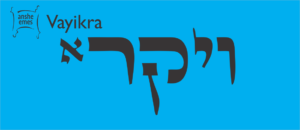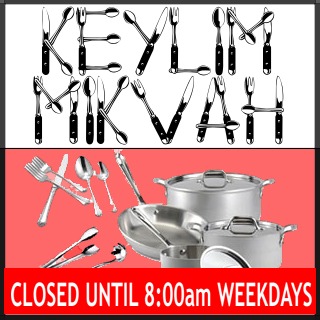 I. Summary
I. Summary
The Five Principal Korbonos (Sacrifices) which could be offered by an individual:
A. Olah (Consumed Offering): This was consumed entirely by the fire on the Altar.
B. Mincha (Allegiance – Gift): An offering of flour usually brought by a person of modest means.
C. Sh’lomim (Peace Offering): A means of expressing thanks to Hashem on joyous occasions.
D. Chatos (Sin Offering): An atonement for certain sins committed unintentionally by an individual (e.g., eating Chometz on Pesach, doing a Malacha on Shabbos).
Korbon Oleh V’Yored: A special type of sin offering (which varied according to the sinner’s wealth) for: (1) swearing falsely that he hadn’t seen or heard evidence necessary for testimony; (2) entering the Sanctuary, or eating Kodshim while “tumah” (unclean); and (3) failing to fulfill a vow.
E. Oshom (Guilt Offering): Offered as part of the penitence required for certain improper acts (e.g., retaining another’s property by swearing falsely). (In each case, the wrongdoer was required to restore the property plus an additional 20% to its rightful owner before he could offer this sacrifice and receive Divine forgiveness.)
II. Divrei Torah
A. Lil’Mode U’Lilamed (Rabbi Mordechai Katz)
1. Korbonos (Sacrifices) and Prayers. The word “Korbonos” includes the word “Korov” (near); a sacrifice was a means of approaching Hashem, supplicating for Divine forgiveness or demonstrating appreciation for Divine assistance, and bringing oneself closer to Hashem. How do we achieve this today? Through prayer. Prayer testifies to Hashem’s mastery of the world, gives us an opportunity to thank Hashem and allows us to ask for Hashem’s assistance.
2. Offering one’s “soul”. The Torah refers to one who offers the Mincha offering as “the Soul who will offer a Korbon.” Why does it use the word “soul”, not “person”? This sacrifice was ordinarily offered by a poor person, for whom it was a difficult financial burden. Thus, in Hashem’s Eyes, it is as though his very soul was sacrificed. This is the essence of offering sacrifices, or giving charity, as illustrated by the following story: A Rabbi was approached by a widow, despondent that she didn’t have any money for the marriage of her daughter. The Rabbi initially said “if only I were wealthy, I would gladly give you money”; a few minutes later, he went to the cupboard and gave her a pair of silver candlesticks which he had received as a present. After the woman left, he explained to his wife what had happened and told her that two potatoes would serve as their new candlesticks. When his wife noted how much he loved the silver candlesticks, the Rabbi responded: “I know, and now I realize what true Tzedakah (charity) means”.
B. Growth Through Torah (Rabbi Zelig Pliskin)
1. Acknowledge the gifts you have received from Hashem. “And if you bring near a flour offering baked in the oven . . . and if your offering is a flour offering baked in a pan . . . and if your offering is a flour offering baked in a pot.” Rabbi Hirsch comments that these three elements of the Mincha offering express our acknowledgment to Hashem for our food, comfort and satisfaction. More specifically, these items have the relationship to each other of bread (symbolizing the ordinary food for happy daily life), cake (symbolizing extra enjoyment, the unusual condition of luxury) and specially prepared foods (symbolizing temporary, passing moments of special joy). Together, they symbolize that our daily necessities, extras and moments of special joy are all gifts from Hashem.
2. Be yourself, but be certain to utilize your full potential. Yeast and honey were not permitted in the offerings on the altar, but salt was. Rabbi Mordechai Gifter teaches that yeast makes the dough rise higher and honey makes things sweeter, but both are external additives. Salt, however, only brings out the food’s existing flavor. When serving Hashem, we should follow the model of salt — we should be ourselves, but make every effort to be all that we can be. (Dipping bread in salt should remind us not only of the sacrifices, but of our obligation to use our potential to the fullest.)
3. Give charity according to your means. “And if one does not have the financial means for two turtledoves or young pigeons, one shall bring his offering for his transgression the tenth part of an ephah of fine flour for a sin offering”. One must give charity based upon one’s means; the same applies to one’s other talents – e.g., the greater your intellect or listening skills, the greater your obligation to share your wisdom with, or lend a ear, to others.
C. Majesty of Man (Rabbi A. Henach Leibowitz)
Moshe’s Modesty. Why does the word “Vayikroh” in this Parsha includes an Alef that is much smaller than the other letters? The word “vayikroh” means “called”, and refers to Hashem calling upon Moshe. Moshe, however, wanted to write “vayikar” (“met” or “happened upon”), so as not to reveal the great honor Hashem bestowed upon him through direct communication with him. Hashem, however, insisted that the Alef be included, although it is printed smaller as an eternal reminder of Moshe’s extraordinary humility. Rabbeinu Yonah teaches the meaning of humility by examining its opposite — haughtiness, which results from feelings of inferiority and inadequacy, and for which one compensates by denigrating others. However, one who is confident in himself (and has realistic understanding of his self-worth) has no need to be haughty or to pretend to be anyone he isn’t. Since Moshe understood his true value, he didn’t underestimate himself and therefore had no need to deprecate others. We must each realize that we have a unique soul given to us directly from Hashem and that, accordingly, our potential for achievement is immeasurable. With this understanding, we can be humble enough to admit our shortcomings and, as a result, show our inner strength and desire to improve ourselves. Humility can allow us to reach even higher levels of personal and spiritual growth and connection to Hashem.
D. Kol Dodi on the Torah (Rabbi David Feinstein)
“Torah, the service of Hashem and kind deeds” (the three pillars on which the world stands) (Pirke Avos). “And Hashem spoke to Moshe from the Tent of Meeting”. Rashi comments that Hashem’s voice stopped at the doorway of the Tent of Meeting; as we learn in Tehillim, Hashem’s Voice is power — why, then, didn’t Hashem permit His Voice to be heard outside the walls of the Tent? The Torah was given 3 times — at Mt. Sinai; in the Mishkan (Tent of Meeting); and on the Plains of Moab. Each time, it was conveyed in the exact same Voice, to show that all three times were of equal importance. But, why did it need to be repeated three times? Each time corresponds to one of the above pillars — (1) Mt. Sinai represents the giving of the Torah; (2) the Mishkan, where the service of the offerings and incense took place, represents service of Hashem; and (3) the Plains of Moab, where the Jews entered into a covenant to be responsible for each other, highlights the pillar of generosity and kind relations among our fellow man. Each of these three aspects of Torah are mutually interdependent. Thus, for example, Torah learning must be for its own sake and directed towards serving Hashem and a means of finding ways of expressing kindness to others.
E. In The Garden of The Torah (the Lubavitcher Rebbe, Rabbi Menachem M. Schneerson, z’tl)
The Dearness of Every Jew. The Parsha begins “And Hashem called to Moshe, and Hashem spoke to him”. Before Hashem spoke to Moshe, He called to him, showing him an unique measure of endearment. Hashem did not call to him to impart information; rather, He did so to express the fundamental love He shares with our people (whom He was addressing through our leader, Moshe). The above concept is fundamental when it comes to relationships with our fellow Jews, even those whose conduct may be (at the present) estranged from our heritage. For every Jew has a soul that is “an actual part of G-d” (Tanya). We should strive to be inclusive, not exclusive, emulating the example of our Torah reading, and share with our fellow Jews the beauty of the Torah. In so doing, we must not be critical of another’s level of observance (when Yeshayahu the prophet made harsh statements about the Jewish people, G-d rebuked him severely even though his words were justified); instead of being critical, we must endeavor to appreciate — and always accentuate — the positive qualities which every Jew possesses. For indeed, the very fact of a Jew’s existence is an expression of G-d’s praise, independent of any Divine service which he or she may perform.
F. Love Thy Neighbor (Rabbi Zelig Pliskin)
G-d is ever-present. The Torah states “If a person sins and commits a trespass against G-d, by lying to his comrade about an article for safekeeping . . . he shall give it to its owner on the day he admits his guilt”. Why is this a trespass against G-d? The answer is illustrated by the following story: Once when Rabbi Zundel Salanter was riding in a wagon, the driver passed by an apple tree and was overcome by a desire to take a few apples. Not realizing the identity of his passenger, the driver told him “You keep watch and warn me if you see anyone looking.” A few seconds later, Rav Zundel cried out, “Someone’s looking!” The wagon driver jumped into the wagon and rode off. As he was driving away, he looked back and didn’t see anyone. “What is the idea of fooling me?”, shouted the driver. “My dear friend”, replied Rav Zundel, “I wouldn’t lie to you. G-d sees every action”.
G. Wellsprings of Torah (Rabbi Alexander Zusia Friedman)
A lesson in humility. “And he shall flay the burned offering and cut it into pieces.” If a man thinks that he is a person of many virtues and fears lest this make him arrogant, let him take all his good deeds and virtues and “cut them to pieces,” examine them thoroughly and critically, and he will see that he is still far from perfection.
H. Shabbos Stories (Rabbi Shimon Finkelman)
1. A lesson for children (and all of us). There is a widespread custom for young children to begin their study of Chumash (Bible) with this Parsha. The Book of Yayikrah deals with the laws of Temple service and ritual impurity. As the Midrash puts it, “Let the pure [children] come and engage in [the study of] the laws of purity.” Sefer Avnei Ezel says that this custom is also a message to parents: The opening of the Book of Yayikrah deals extensively with korbanos (Temple sacrifices). A parent must be prepared to make sacrifices — both financial and lifestyle — so that his/her children can study Torah and grow up in a home imbued with a love and appreciation for Judaism.
2. Teaching your children. Chazal teach that the Book of Yayikrah opens with the words, “He [Hashem] called to Moshe” to teach that Hashem summoned Moshe lovingly, saying, “Moshe, Moshe, whenever He wished to speak with him.” We may suggest that this, too, is implied in the custom of children beginning their study of Torah with the Book of Yayikrah. Just as Hashem called lovingly to Moshe, so too, must a parent or teacher speak lovingly to a child when teaching him or her the proper way to behave.
I. Divrei Torah (National Council of Young Israel)
A lesson of the Korbanos (Sacrifices). The above Midrash respecting the custom of children beginning their Chumash studies with this Parsha can be better understood by understanding the essence of the korbanot (sacrifices). Basically, korban, signifies “drawing near” to Hashem (from the root “korov” [near]) through the medium of sacrifices that the person offers to Hashem. This is effectuated by the understanding and realization on the part of the person that he is obligated to bring a korban. This understanding is followed by the actual performance of “smicha”, laying of hands upon the offering and confessing his iniquities (Yoma 36A). The elements of repentance and appreciation of one’s faults and inadequacies, thus “humbling oneself before Hashem,” are basic to the proper offering of a korban. Humbleness is basic to Hashem’s acceptance of the korban and greater than all sacrifices; whether bringing an external korban or an internal korban — a willingness to sacrifice for his religious principles and convictions. By his sincerity of purpose while sacrificing, he draws nearer to Hashem. The Midrash quoted above stresses the importance of inculcating, from a very early age, the concept of humbleness before Hashem and readiness to sacrifice for one’s religious convictions. Let the “pure” children occupy themselves with the “pure” — korbanot that will teach them humbleness, leading to proper fear and reverence for Hashem, and thus develop a strength of character, ethics and morals.




 Visit the group and request to join.
Visit the group and request to join.
